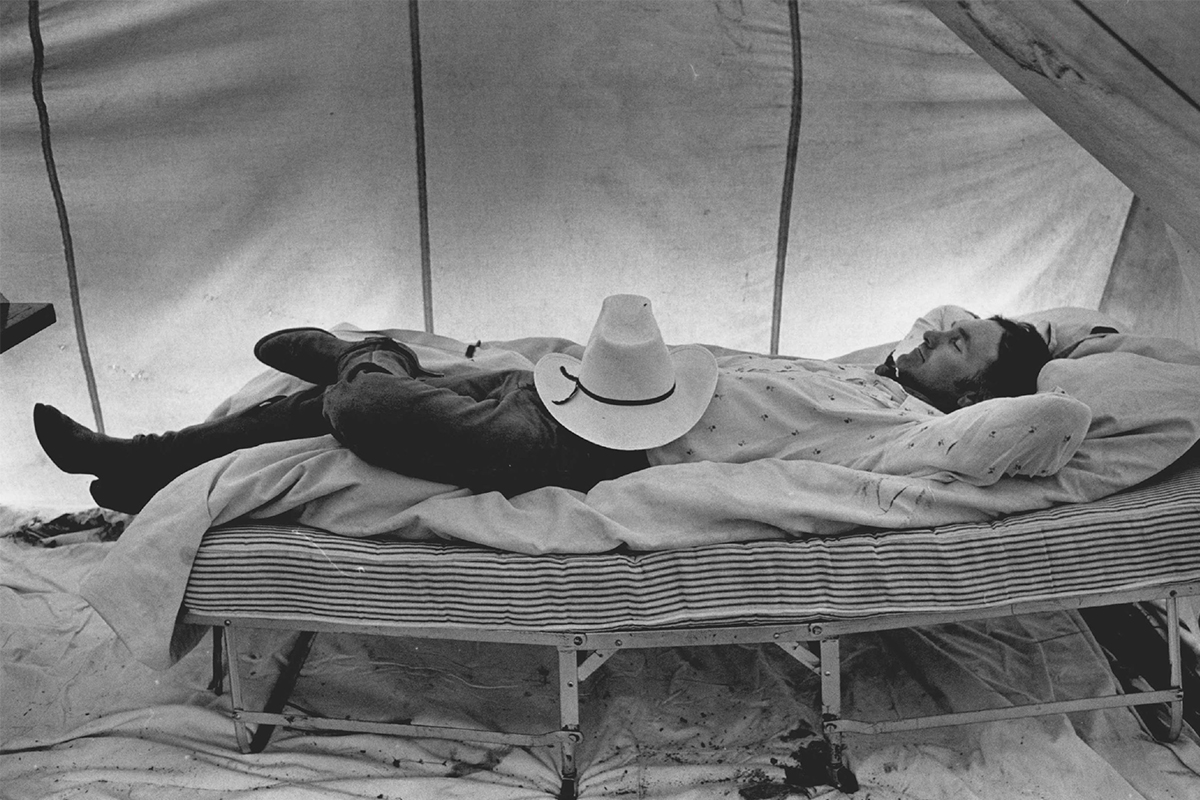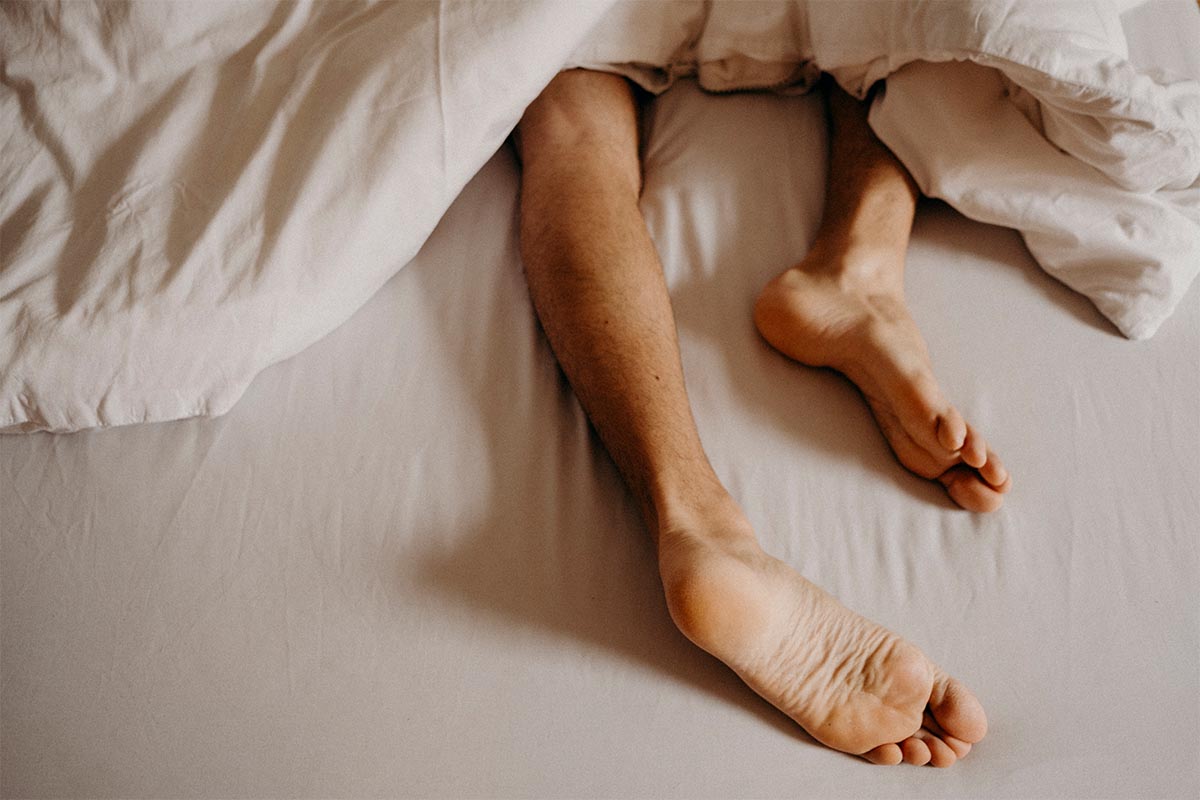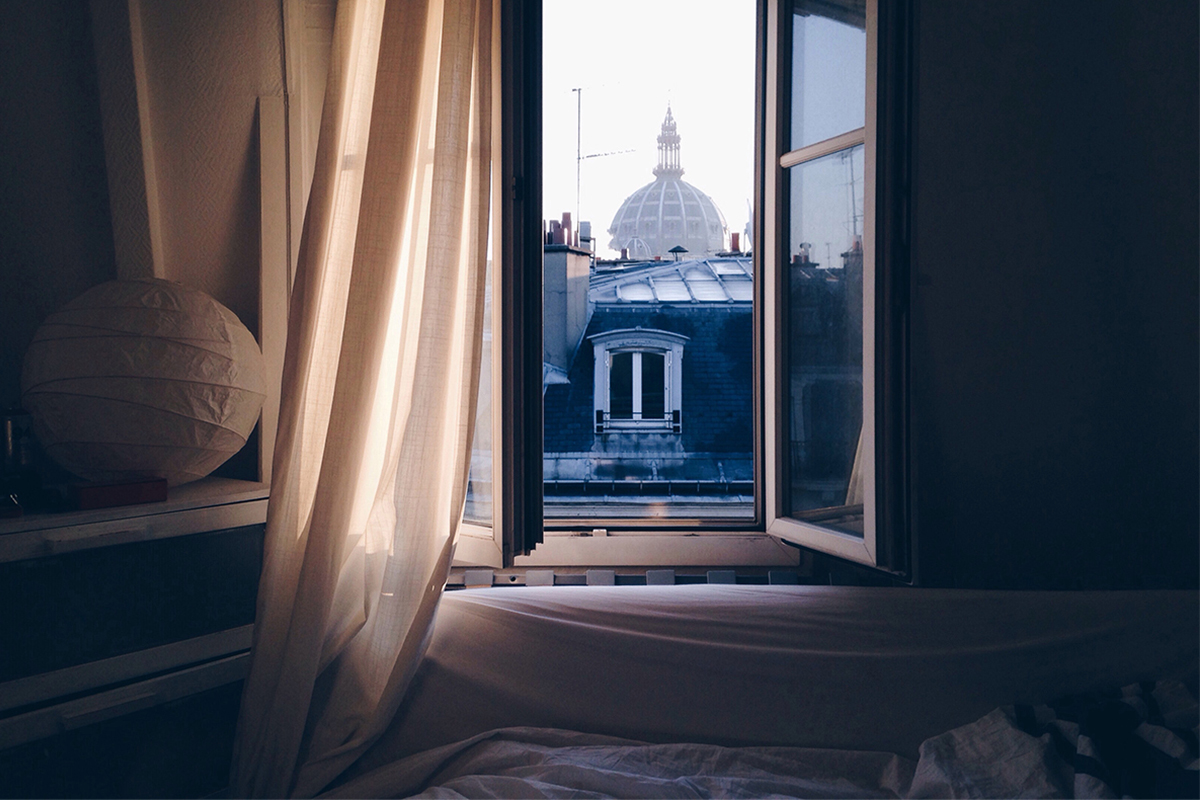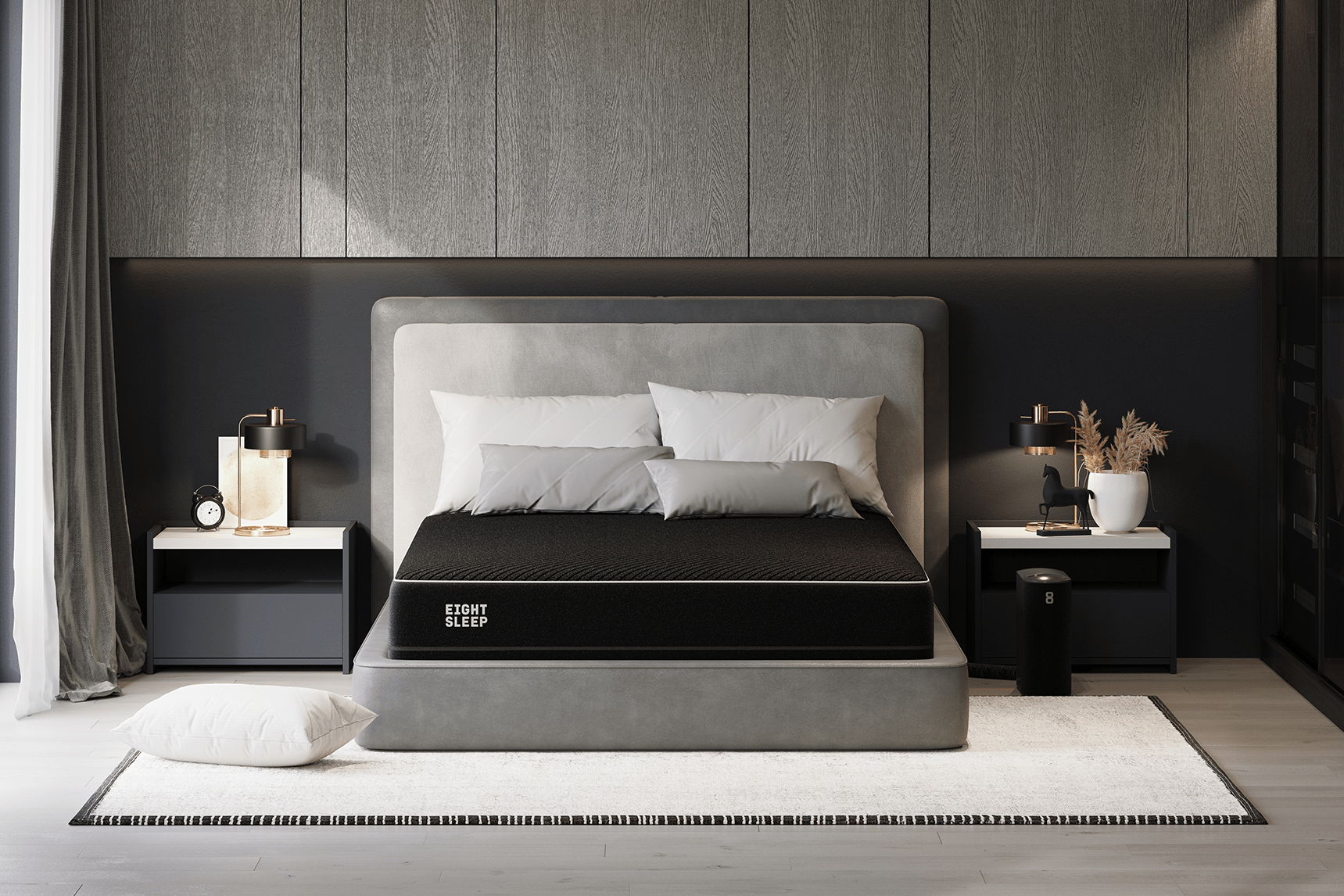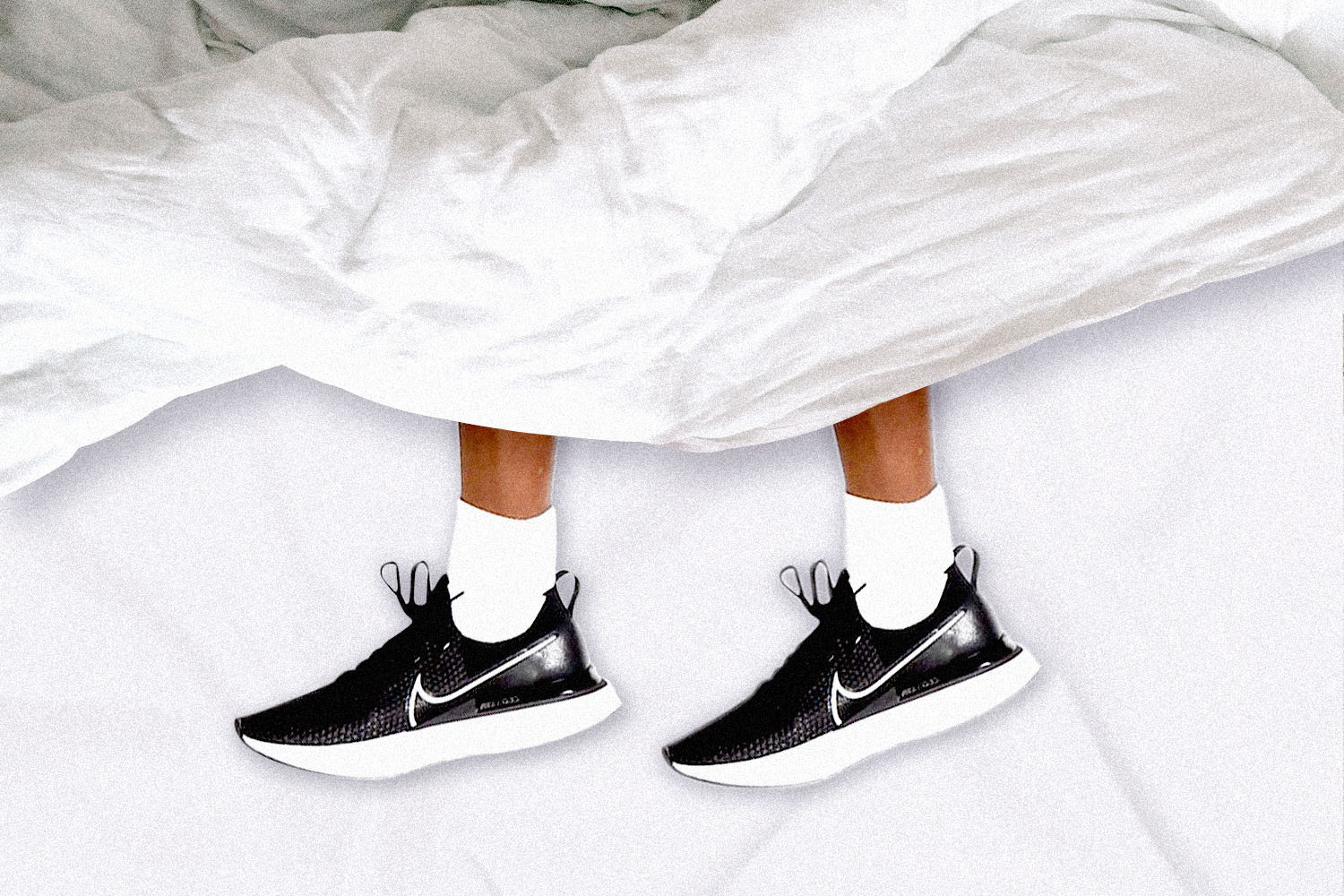I went to Spain with a friend last week. It was my first trip out of the country in over a year, and his first in over two years, so we tried to do it right. We wandered Sevilla on scorching, 110-degree days (the country set a new temperature record), drank espressos and cervezas while the locals took their siestas, and went on tapas crawls after the sun went down.
On the initial flight over, a red-eye, I’d “slept” for all of 45 minutes. And throughout the week, there was only one time — according to my WHOOP app — that I managed to sleep more than four hours in a night. Maybe if we’d sat on a beach in New England for seven days, I’d have left vacation feeling relaxed and restored. But we chose to go Full Europe.
My natural inclination when I returned was to binge as much sleep as possible. I was zonked for almost 11 hours the first night back. For most of us, it’s the obvious remedy of choice after a big week. Whenever you do too much — too much travel, work, working out — and your personal battery hits 1%, you can always rely on one or two massive sleep-ins to come firing back.
In fact, that’s how the majority of America treats the weekend. Nearly 60% of the country’s short sleepers look to pay off their “sleep debt” by sleeping more on Saturday and Sunday. The habit starts in adolescence, and by adulthood, feels routine, if not deserved — akin to eating a piece of cake after a workout class.
But is that actually how this whole system should work? Whether as a one-off after an epic trip or a fail-safe after another shitty week, can we really afford to pin all our health — and happiness — on a double-digit snooze?
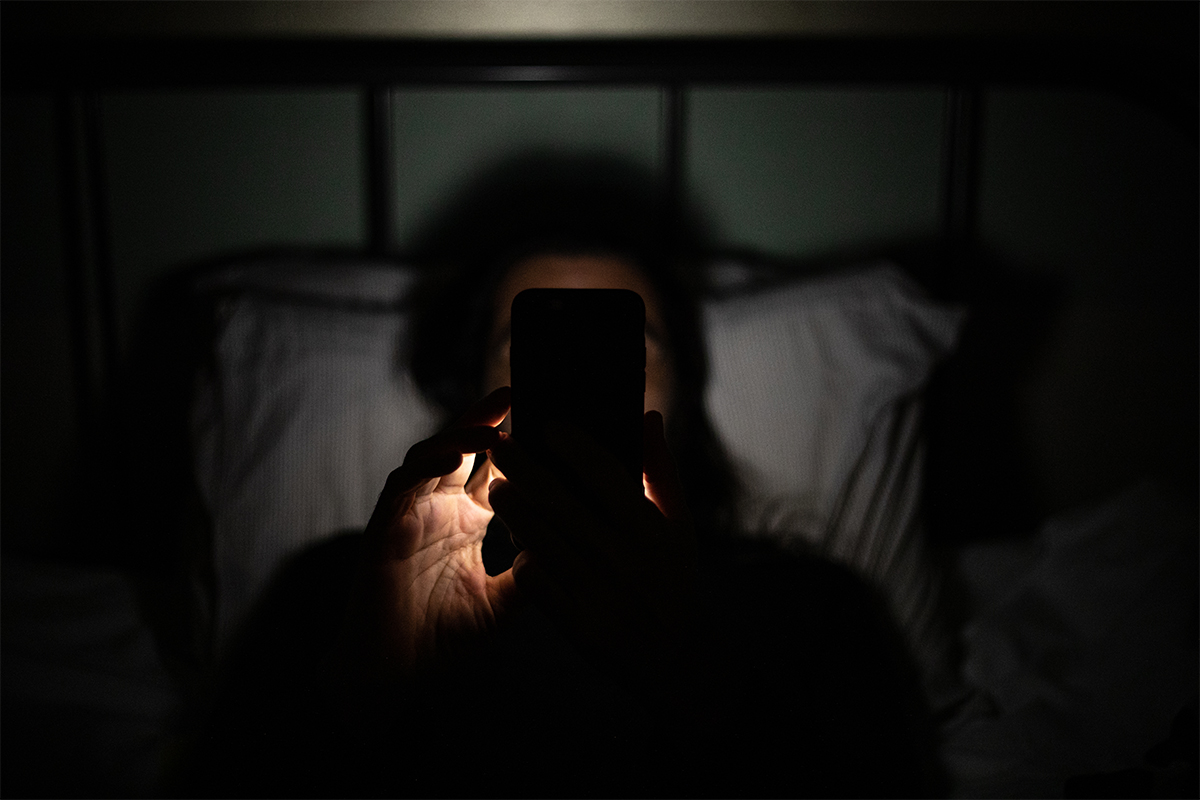
Sleep debt, more formally known as sleep deprivation, is the gap between how much sleep you’re supposed to get and how much sleep you actually get. Somonologists generally recommend seven to nine hours a night, but over a third of Americans sleep less than six hours per night. The cost of regularly missing sleep has damaging short- and long-term effects: sleep debt has been linked to mood swings, issues with memory, accidents on the road or at work, arguments in the home, obesity, heart conditions, dementia and lower mortality rates.
Fascinatingly (in a truly depressing way), people who consistently operate on little sleep are unable to discern shortcomings in their day-to-day performance. They may have a general idea that they should be “getting to bed a bit earlier,” but under-sleeping, according to one study, “impairs neurobehavioral performance and self-assessment of alertness.” In other words, not only does poor sleep make people unfocused — it makes them so unfocused they don’t realize they’re unfocused. The authors of that study noted succinctly: “Millions of individuals routinely remain awake for more than 18 h daily, which causes performance decrements.”
For much of the 2010s, America’s sleep performance metrics were headed in the wrong direction. Experts attributed the disturbing trend to a rise in smartphone usage before (and often in) bed; as we’ve covered at length, blue light from screens sabotages the pineal gland ability to release melatonin, a crucial hormone aid for falling asleep. Then the pandemic arrived. At first, quarantine felt like a lifeline — no more commuting! — but that was short-lived. Over half the country reports “spending less time sleeping than before the pandemic,” while 67% believe their sleep “was healthier before lockdown.”
How is that possible, if we technically have more time to sleep-in in the WFH era? For similar reasons to why weekend sleep-ins aren’t the recipe for a healthier sleeping routine. Grabbing extra hours here and there — like working odd jobs to pay off the month’s rent — isn’t a sustainable solution. Sleep has suffered since the pandemic began because people are working longer hours. It’s suffered because people are stressed about the safety of their loved ones and the state of our country. It’s little wonder that insomnia is on the rise, and even when people do manage to fall asleep, they’re more likely to have traumatic dreams.
Here’s a new term for you: social jetlag. It’s one of the biggest reasons you should reconsider your weekend sleep-in habit. If you sleep from, say, 12 to 7 a.m. each weeknight, but from 1 to 10 on Saturday and Sunday, you’re shifting the “midpoint” of your sleep from 3:30 to 6. Researchers have described this as “living against your internal clock.” You’re basically throwing your body a massive, temporary curveball, in defiance of whatever sleep-wake cycle you’ve set up to function throughout the workweek, then asking yourself to return to the normal schedule in time for work on Monday morning.
No wonder that so many of us fret through Sunday scaries, guzzle caffeine all week and feel positively zombified by 4 p.m. on Wednesday. Approached with good intentions, sleep midpoint is a useful figure for understanding the particularities of your circadian rhythm. But whenever it’s jostled forward, the circadian rhythm quickly runs amok; biological functions from body temperature to metabolism suffer, as does your decision-making. Short-sleepers, for instance, are often also late-night snackers. They’re also more likely to smoke or drink, and less likely to exercise.
One recent study actually connected a later sleep midpoint with an increased rate of depression. Researchers sifted through the data of 800,000 sleepers, cross-referencing their circadian tendencies with their risk for depression, and found that “early birds” had a 23% lower risk of major depression. This sort of research makes the best path forward pretty clear: if you must recoup sleep debt on the weekends, prioritize an earlier bedtime, not a later wake-up time.
Obviously, it’s easier said than done. Most of us have been on this grind since high school. Adolescents are supposed to get eight to 10 hours of sleep each night. They don’t. Gen Z is shaping up to be the most sleep deprived cohort in history. Anecdotally (I’m a young millennial), I don’t remember any of my high school classmates — mini-adults with 6 a.m. wake-up times, commutes, six classes a day, sports practice, homework, standardized testing prep — getting anywhere near eight hours. More like six. A lot of them under five. When you come of age accustomed to sacrificing sleep, it gets easier to ignore circadian rhythms, and just take sleeping hours as they arrive. That’s to say nothing of the drinking culture of college students and 20-somethings, which blows healthy sleeping habits to smithereens.
So, how do you break this cycle, and retrieve your natural one? Bit by bit. Try to start treating weekends as an opportunity to proactively get good sleep, instead of blindly aiming for “a lot” of sleep. Push your bedtime forward (on weeknights and weekend nights alike), to a time that will help you reach the recommended seven hours, and to a midpoint that occurs before sunrise. The ideal sleeping routine, ultimately, is a delicate balance of consistency and moderation. Your body thrives on routine. As one study points out, sleep’s relationship with longevity is U-shaped: The people who sleep the most don’t necessarily sleep the longest. Long sleepers actually have a 25% increased mortality risk. (It’s 65% for short sleepers.)
The key is to hang out in that sweet spot every night. For those who feel daunted by this concept — I can’t sleep in this Saturday?! — know that weekend sleep absolutely can compensate for short weekday sleep. Keep doing it until you can make lasting changes. The alternative would be around-the-clock sleep deprivation, which I just experimented with in Spain. I recommend the cathedrals, not the hallucinations. Weekend sleep will smooth things over for a day, two at most, and then it’s back to another “big week.” The next time one rolls around, make sure you’ve had the 40 winks you deserve.
Whether you’re looking to get into shape, or just get out of a funk, The Charge has got you covered. Sign up for our new wellness newsletter today.
